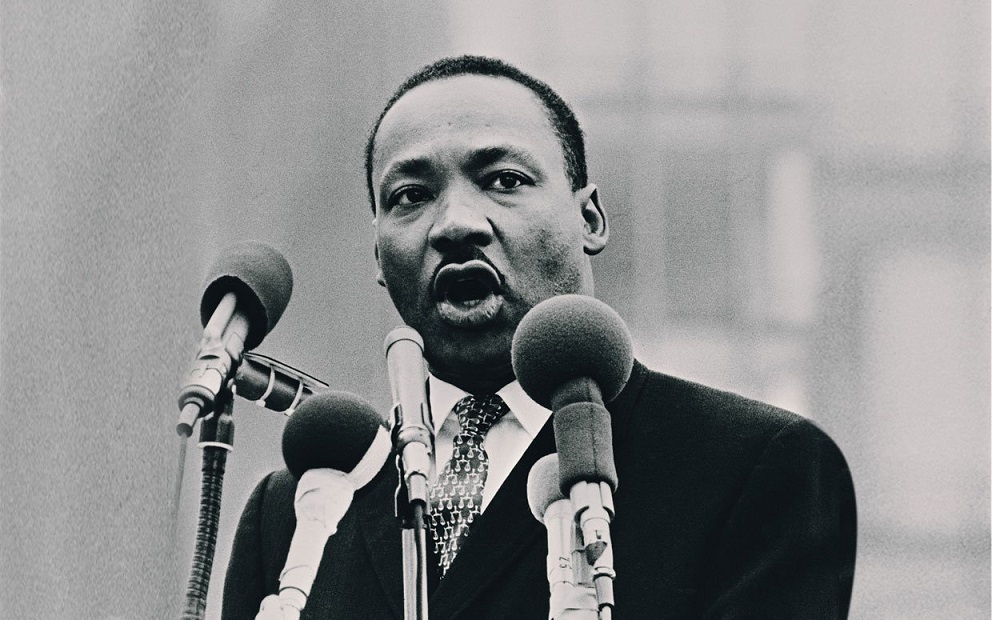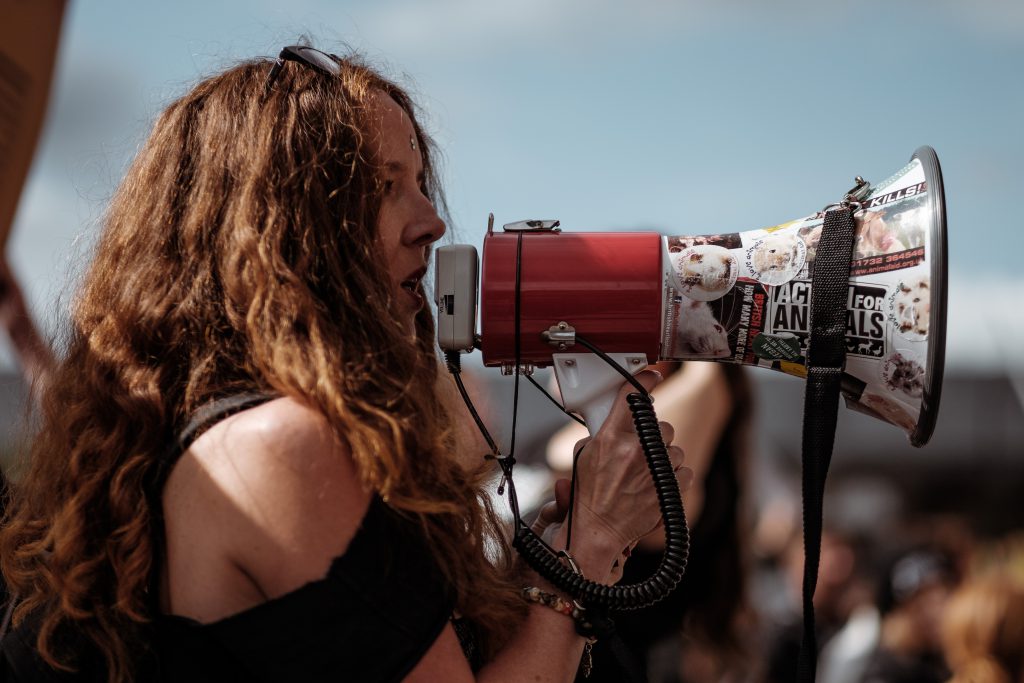Geeky Activists Inspired by Dr. Martin Luther King, Jr.
Yesterday was Martin Luther King, Jr. Day, which provided a chance for all of us to reflect on America’s complicated history regarding equality – and a chance for us to look to the future. But we’re not the only ones who do that. Fictional characters have always been reflections of our own journeys and struggles. These fictional activists are top-notch examples of the enduring nature of Dr. King’s example and legacy…even if their passion might be fighting for elves, a space rebellion, or genetic mutants.

[Movie still from Harry Potter and the Prisoner of Azkaban, Warner Bros]
Hermione Granger, Society for the Protection of Elvish Welfare (Harry Potter)
Hermione Granger has a strong social conscience and a desire to achieve magical equality. One of Hermione’s earliest campaigns is her formation of the Society for the Promotion of Elfish Welfare (SPEW), intended to improve treatment of house-elves, while at school.
SPEW is…not particularly successful. JK Rowling writes with humor about how Hermione’s crusade alienates not only her fellow students, but also house-elves – none of whom Hermione bothers to talk to. Hermione is idealistic but naïve, since she doesn’t collaborate with, or actually listen to, the oppressed. Pretty relevant these days.
Hermione eventually realizes that hiding socks in the Gryffindor Common Room won’t bring about house-elf liberation. Eventually, an adult Hermione begins to work with other wizards and house-elves as a member of the Department for Magical Law Enforcement. Her activist roots make her an obvious member of this list.

[TV still from Star Trek: Deep Space Nine, Paramount Television]
Colonel Kira Nerys, Bajoran resistance (Star Trek)
Young Kira Nerys, who grows up in a refugee camp, comes to hate the Cardassian Empire’s occupation of her home planet, Bajor. She becomes involved with the Bajoran resistance, running errands and messages for her local cell. The horrible conditions that Nerys and her family are kept in lead Nerys to believe that her people can only be free if they forcibly remove the Cardassians from Bajor. Later, she uses guerrilla tactics to try to repel the Cardassian military authorities.
Nerys is not an activist who fits comfortably into the mould of Martin Luther King. Her philosophy is closer to that of Malcolm X, who claimed that liberation must be achieved by any means necessary. When the Cardassians reluctantly withdraw from Bajor, Nerys becomes a ranking officer of the Bajoran Militia. She’s initially hesitant to be assigned to Deep Space Nine and doesn’t trust Starfleet procedures. But over time, Nerys comes to recognize that diplomacy can also lead to change.
Nerys, like countless real life activists, is forced to make the kinds of compromises that she once bemoaned. She’s a fascinating example of the familiar real-world anti-colonial activists who eventually go into government. Around MLK Day, using Nerys as a conversation starter is a handy way to talk about whether activism or political power can be more effective in achieving equality.

[Movie still from X-Men, 20th Century Fox]
Professor Xavier and Magneto, mutant equality (X-Men)
Writers of the X-Men comics made no secret of their desire to explore Dr. King’s non-violent political protests (as embodied by Professor Xavier) and the more violent struggles of Malcolm X (Magneto, Professor X’s old friend.) Both men are born powerful mutants – the telekinetic Professor Xavier can also read minds, while Magneto can move any metal object and create magnetic fields. However, the two have very different childhoods. Professor X is given freedom to develop his talents, but Magneto lands in a World War II concentration camp and watches as Nazis kill his parents.
As a result, Professor X and Magneto develop divergent views of humanity. Professor X believes in the need to cooperate with humans, while Magneto becomes convinced that only mutants can be trusted. Both characters are crafted with believable backstories and motivations – it’s only too understandable that a Holocaust survivor would be distrustful of humanity. Sometimes the two are as close as brothers, but the difference in how they want to achieve equality provides a human (or, well, mutant) example of the division between non-violent civil activism and active aggression to fight for civil liberties. A celebratory MLK Day viewing of the X-Men movies is a great conversation starter about these philosophies, and how they both became an essential piece of the fabric forming the Civil Rights Movement.

[Movie still from Star Wars: Episode VIII – The Last Jedi, Lucasfilm and Walt Disney Pictures]
Princess Leia, galactic freedom (Star Wars)
We can’t talk about activism without mentioning Princess Leia, the woman who became a rebel general, and the woman who brought her to life, Carrie Fisher. Both women are royalty (one from Alderaan, one from Hollywood) who used their privileged background to advocate for thousands of others.
Princess Leia is raised in a family with a strong commitment to the Rebellion against the fascist Empire. She’s and sentenced to death by one of the Empire’s top brass, but she continues to stand up for what she believes in, even in the face of execution (which she escapes, of course). Leia plans military operations, argues for human rights in the Galactic Senate, and eventually becomes a prominent official in the new Republic, even returning to her guerrilla past as a general opposing the First Order. Despite her son’s defection and her lover’s death, Leia, like Dr King, remains stoic and determined regardless of the personal cost of the campaign for social justice.
Carrie Fisher also endured a difficult life. She suffered from various addictions, a loss of privacy, and mental health issues, but constantly used her public profile to speak out about the realities of bipolar disorder and the dangers of addiction. Princess Leia is probably such a memorable character because of her smart, funny, independent actress – which is one of the reasons that Fisher’s recent death was so heartbreaking. Both will remain in the public consciousness as icons of activism and awareness.





